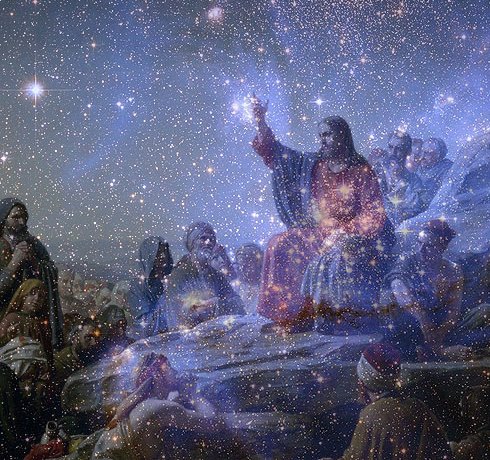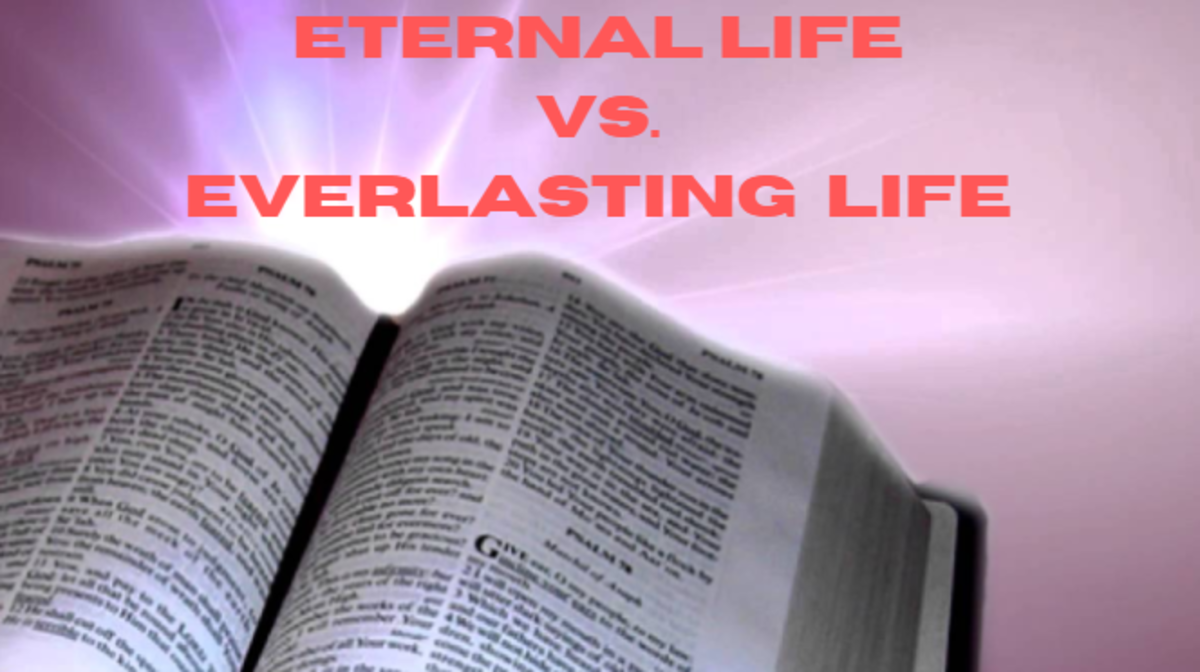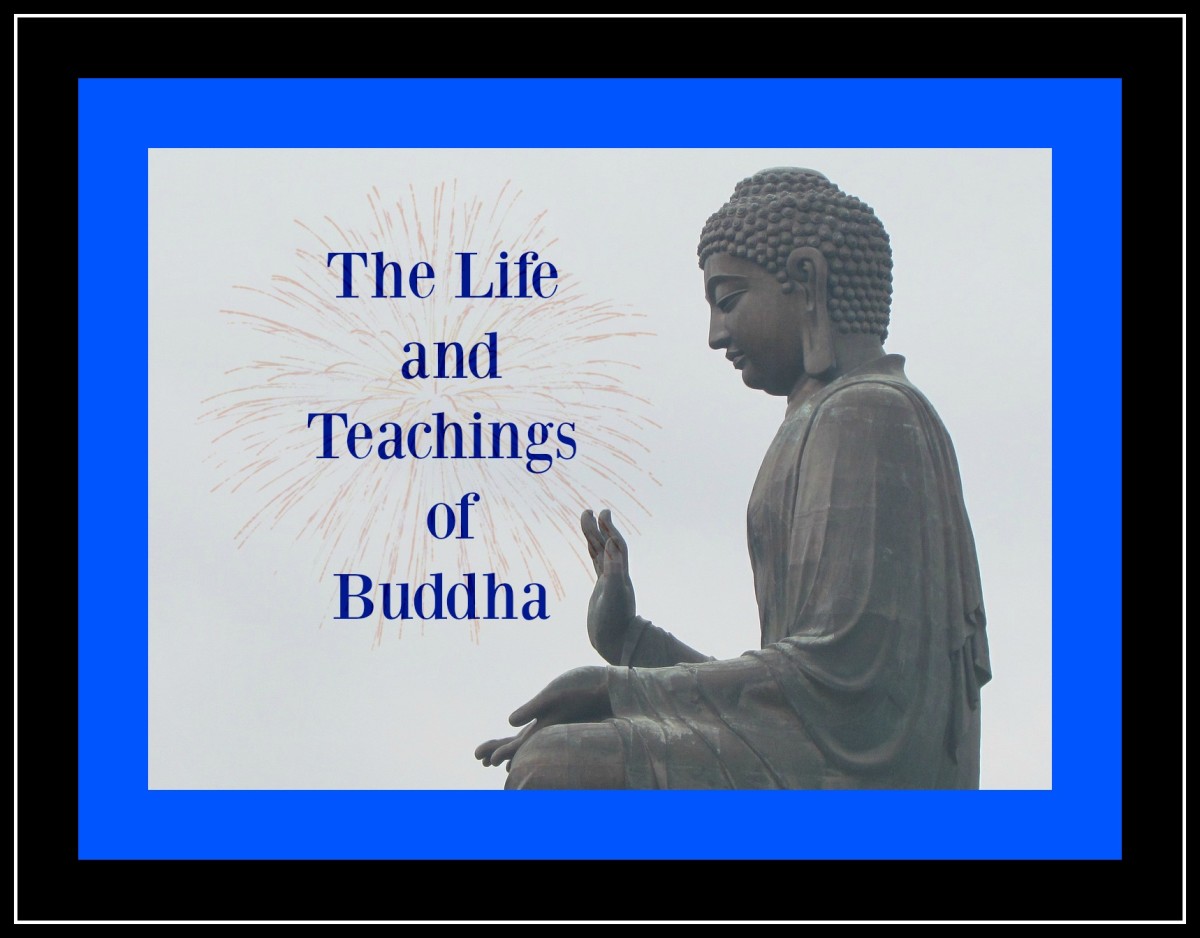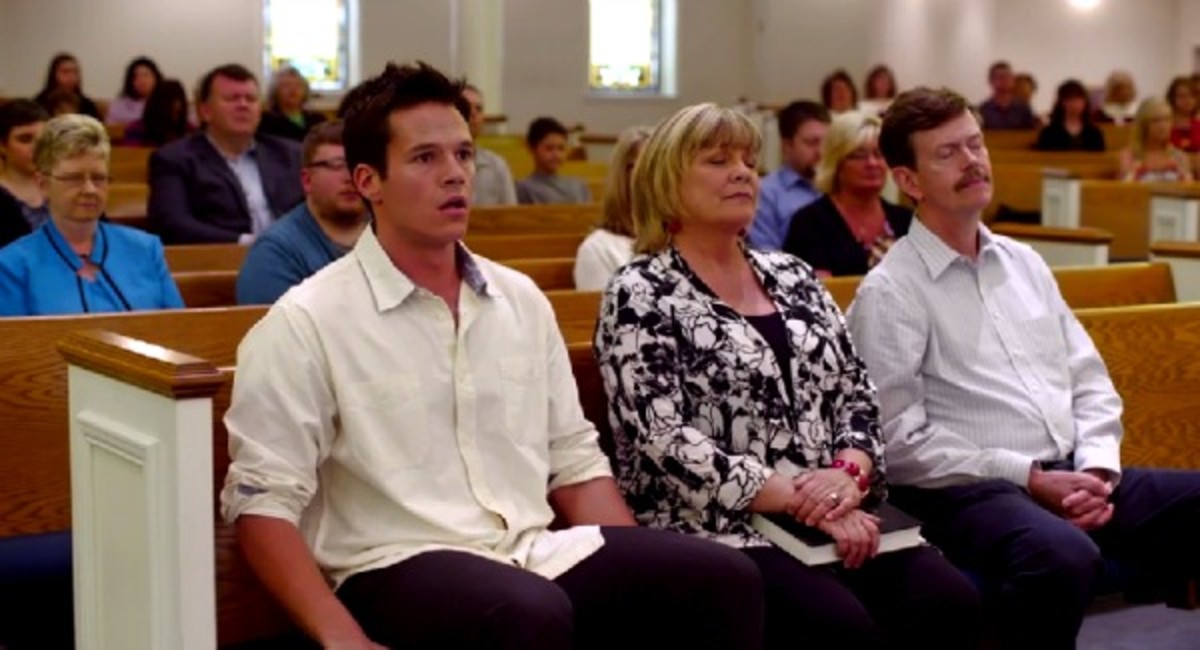Mysteries of Christianity: The Many Faces of Ego

I'm not perfect. I have a big ego. And yet, sometimes talking about such things helps to shed a light on them, making them more manageable—helping to make changes.
Eliminating ego, for the sake of our immortal soul, is possibly the most important change we can ever make.
Could this be what Jesus meant when he talked about losing our life to gain everlasting life?
Read the Book that Changes Everything

I Want it, So I'll Get it
Ego includes a sense of entitlement. The internet is rife with examples of this. Napster and Limewire fed this entitlement, for awhile. Copyright holders took such companies to court to ensure the laws were followed.
Taking pirated movies and music online is theft just as much as it is walking into a store and taking a DVD or CD without paying for it. Even after being told this, some people don't care. "Everyone does it, so why shouldn't I?"
Entitlement extends not only to entertainment media. The internet is full of examples of people taking website content without asking. People copy pictures which are not in the public domain, and copy text without crediting the author or asking permission. I have experienced a few instances of people taking not only pictures from my website, but stealing bandwidth, too. They don't host the picture at their own website, but link to it from my site, thus costing me bandwidth to deliver the picture to their webpage for each visitor. That's a double theft.
Such acts seem clearly selfish and are full of ego. Ignorance? Yes, ego ignores a great deal. But ego is not always so obvious. Ego has many faces.
Alienation and Separateness
Separation was perhaps the original crime or sin—turning our backs on God in the Garden. Your body wasn't there, but if you think you were not there, then chalk it up to faulty memory. We were created in His image, and are thus immortal. The bodies and the names attached to them may be temporary, but the true self, within, is timeless. We are each responsible for the original sin. We carry the weight of that burden.
Some have wondered why God would care so much about us humans. It isn't the bodies He cares about. It is the "flesh of His flesh" which is no flesh at all, because He has no physical form. He cares deeply about rescuing His non-physical and immortal children. These bodies mean nothing in the end.
All instances of egoism can be seen to contain self-concern. Both negative and positive self-concern feed ego and increase the separation between us.
Suicide is one of the biggest separations. It is an alienation from everyone and everything. This is ego rejecting everything, including one's own life and existence. At least with Homo sapiens life, we have a chance to awaken and to return to God. With the oblivion of suicide, that chance disappears.
I had a teacher in high school who lauded the act of suicide. Personally, I despised him for this and argued actively against it in class. Years later, I learned that one of my fellow students jumped off the bridge in Rock Creek Park. I was angry at both her and our mutual teacher of English literature. Suicide is entirely selfish, and not some cute "lifestyle" choice.

Suffering
Those who feel pain in life (mental and/or physical), but don't show it, are heroes. They hide their suffering, because they don't want sympathy. Sympathy is one of the legal tenders of ego. And if you think sympathy is the same as compassion, think again. Sympathy is empty, but compassion is full of help and love.
On the flip side, those who obstinately refuse help from others because they don't want sympathy are also letting their egos get out of hand. One should be humble, gracious and grateful for such gifts. Don't make a big deal out of it and merely move on with your life.
Jesus told those who fasted not to show it. Freshen up so that no one around you could ever figure out that you were in any discomfort for your holy act of fasting. Such public shows of supposed righteousness are the opposite of righteousness. They are the pit of evil itself.
Victims are particularly guilty of waving the ego "flag." Once you really look closely at this, you'll see a large array of ego along this dichotomy (plus-and-minus) vector, from the "poor, poor me" victim at one end of the scale, to the suffering and vengeful perpetrator at the other.
Being Good
Jesus came to Earth because the old laws were not working. Too few were being saved. People were abusing the covenant with God. They publicly displayed their law abiding nature so that they could gain admiration and favor from their peers. How thoroughly egotistical and selfish.
Those who are bad and who suffer an inner torment may be farther along on the road to salvation than those who piously go to church every week and smugly think they have it made. One Christian I met at a party was so thrilled to be saved, because now he could commit any crime and still go to Heaven. Will he really?
It is said that accepting Christ will give one salvation. But is the selfishness of my party acquaintance compatible with accepting Christ? It has been said that we can serve only one master. If one hungers for such selfishness, isn't one really accepting the master of this world—ego?
The Heart of Ego—Clues in Genesis
Ego is all about the physical universe—dichotomies and the continuity of reality.
In Genesis, the Forbidden Fruit found in the Garden, was from the Tree of Knowledge of Good and Evil. This was a "tree" of opposites—not only "good" and "evil," but also generous-selfish, wisdom-stupidity, compassion-indifference, victim-perpetrator, and many others. The "good" in each of these dichotomies is only a relative "goodness," not the divine variety. Each is tainted with its opposite. Each blinds the immortal spirit, separating it from God. This is the instantaneous death of which God spoke when he told Adam that he would die on the day he ate of the Forbidden Fruit.
Was it a physical tree and physical fruit in the Garden? Certainly it wasn't the apple, and most likely it wasn't at all physical. Could it be that the allusions to physicality in the Garden were for the benefit of the audience who might not otherwise have appreciated the story? After all, Adam and Eve did not physically die on the day they ate the fruit. They died spiritually. They were separated from their spiritual roots—caught in the "long sleep" of spiritual "death."
In the motion picture, Year One, actor Jack Black finds himself in the Hollywood version of the Garden and arrogantly takes the fruit from its tree and takes a bite. The scene was quite humorous, but Hollywood got one thing right. Mr. Black's character, Zed, displayed a reckless sense of entitlement. He was going to do things his way, no matter the consequences. This is the attitude of separateness. This is ego all grown up.

Everlasting Life and the Fine Raiment for Entering Heaven
Salvation is all about discontinuity with reality—not ignoring reality, mind you, but not wallowing in it, either.
When someone resents what another has done, they are clinging to the continuity of action and consequences. Frequently, they want revenge. Forgiveness, on the other hand, acts as a complete break with the links which bind resentment to the past. This discontinuity is essential to complete forgiveness. Otherwise, the individual is continually bound to the source of that resentment, like a ball and chain.
The founder of Christianity told his followers that many think they are going to Heaven, but cannot cross that threshold because they are wearing the dirty rags of this world. What did he mean? What are these dirty rags?
"Who also hath made us able ministers of the new testament; not of the letter, but of the spirit: for the letter killeth, but the spirit giveth life" (2 Corinthians 3:6 KJV).
Are biblical literalists looking to the letter of the law and lazily relying on it rather than remaining hungry for the spirit of its meaning? It's easy to fall into that trap, especially with ego reassuring us that we are now right and everyone else is wrong.
Perhaps one clue comes from his interaction with the Pharisees, who were known for their abidance of the law. This sect of Jews thought they were doing the right thing. In fact, they made a big deal out of being "right." Jesus seemed to have as much respect for the Pharisees as he did for the rich, and he said that the rich have little chance of making it into heaven. Why would this be? Could it be because of their attachments? This seems likely, but perhaps the most damaging attachment is to their egos.
When Jesus talked to Nicodemus about the need to be born again, he was not talking about being born of the flesh, but of the spirit. Remember what happened in the Garden? Adam and Eve were not killed physically, but spiritually. Everlasting life, some think, will result in their physical bodies living forever. What do you think?
If the Pharisees could be in such spiritual trouble for being right all the time, should we then be wrong? Somehow, I don't think that was the point. But being wrong and swallowing pride might be a good exercise for subduing ego.
Perhaps the real trouble for the Pharisees was in their public display of righteousness for their own selfish sakes, rather than for the sake of righteousness itself. There is a certain power in doing good things, but doing them anonymously. No one will know to reward you for your good acts except, of course, for the heavenly Father. And does that fact give ego another option for taking control? If you do all of your unselfish acts with a sense of entitlement, can they remain truly unselfish? Could any act done with thoughts of self be done without involving ego? Perhaps that is a contradiction in terms.
Being Right and Survival
As humans, being "right" is part of life. Being wrong is frequently equivalent to pain, suffering or even death. Survival depends on being at least a little right. That's part of the mechanics of our physical lives. Being right is second nature to us. It's in our blood. Could it also be that which holds us down?
The hunger to be right—for pleasure, for progress, for enough to eat, for survival—is what drives ego, too. How do we survive without it?
What if we merely survive if survival is part of what we can create by our own hard work and honest, private efforts? What if we need not be concerned about survival? What if we were to be grateful for everything that came our way, not just pleasure and wealth, but also suffering and even death? I'm not talking about masochism. I'm talking about "turning the other cheek." I'm talking about being bigger than death, but more humble than a mouse. Don't seek pain and suffering, but don't resent it either.
Ego knows everything you do and wants to be involved in all aspects of your life. So, how do you escape ego? Jesus told us that we should not let the left hand know what the right hand does. How do we do this? With faith (confidence) in God, and by asking. Ask and you will receive.
Asking with Prayer
When you ask God, you need to do it with faith and feeling. Don't feel the "want" or "lack" of something, for that is what you will receive—"lack!" Picture, instead, in your prayers, that the object of your prayers is already yours, if it so pleases God. Realize that all things are possible with God's love and power. Nothing is impossible to Him.
Faith raises you to the level of discontinuity (outside the physical realm) where all things are possible. The humility of giving the request to God subdues ego and opens the door to the answer to your prayers. In fact, humility is the antidote to ego. Humility erases the self of this world so that the true self (child of God) of that other world may be reborn.









